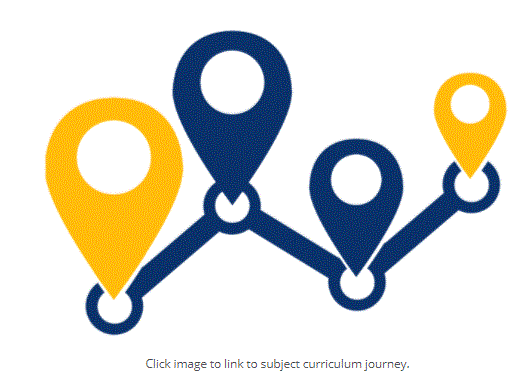SMSC and the Curriculum
The English Department at St Michael’s is proud to offer a range of Spiritual, Moral, Social and Cultural experiences through English lessons and extra-curricular activities. Our curriculum allows students to extend their spiritual, moral, social and cultural appreciation and understanding of society. Students express their creativity and understanding of other cultures through their study of literature and non-fiction texts which allow students to develop and showcase their skills, knowledge and experiences through SMSC in English. The English department teaches a range of literature that develops spiritual development through discussion and debate. For example, the study of the classic novel ‘The Strange Case of Dr Jekyll and Mr Hyde’, amongst others, encourages the discussion of the difference between good and evil, considering the impact of conscience. The study of texts like this gives students the opportunity to think about the consequences of right and wrong behaviour, applying this to their own lives. Creative writing and the study of poetry gives students the opportunity to reflect on their own beliefs and helps them to establish their own relationship with language. Writing is expressive and allows for a reflective process and the freedom to be creative and experiment.
Spiritual development in English
At St Michael’s Church of England High School, we encourage all students to reflect on the things that are most important to us in our school community. Students may have a religious outlook or they may prefer a humanist approach, either way, we encourage the students to enjoy a common sense of well-being and fulfilment. Being spiritual can sometimes help us to achieve this.
The school symbol, which includes the Archangel St Michael’s wings, reflects both religious and humanist values and is integrated into the English Curriculum; MERCY, INITIATIVE, COURAGE and COMPASSION, HUMILITY, ACHIEVEMENT, ENTHUSIASM, LEADERSHIP and SERVICE. Spirituality and reflection can take place at any time in all areas of our school community.
Examples:
- English Yr10 & Yr11 GCSE texts – religious imagery and meaning (‘A Christmas Carol’ and ‘Silas Marner’).
- English Yr8: Speechwriting and rhetoric – self – worth.
- English Yr7: ‘Refugee Boy’/’Of Mice and Men’ – reflection, self-worth and history.
- English Yr10: Conflict Poetry – an increased sense of identity.
- English Yr7: Discovery curriculum – an increased sense of identity, understanding of diverse groups.
- English Yr9: Jekyll and Hyde – a sense of identity, good versus evil, the duality of human nature.
Moral development in English
In Year 7, we teach a Discovery curriculum which encourages moral thinking through the recognition of values such as goodwill, humility and kindness. Students are able to analyse character and events to explore the consequences of negative actions through a range of different text types. During the study of fiction, students are given the opportunity to consider different perspectives and empathise with other characters. For instance, the study of Zephaniah’s ‘Refugee Boy’ poses a range of topics and themes for debate such as racism and prejudice.
Class readers studied at Year 7 and Year 8 deal with moral questions, such as race, homelessness, alcoholism, sexism, giving students the opportunity to produce their own writing on complex moral issues. Writing non-fiction texts such as newspaper articles, leaflets, reports and reviews help to develop students’ ability to apply fiction to real-life scenarios.
Examples:
- English Yr8: Rhetoric and speech-writing – social class division and prejudice
- English Yr8: Shakespeare unit – ‘The Tempest’– exploring choices made – moral values
- English Yr11: Shakespeare unit – ‘Macbeth’/’Romeo and Juliet’ – exploring choices made – moral values
- English Yr7: Discovery curriculum – exploring choices made – moral values
- English Yr10: ‘An Inspector Calls’ – prejudice; social values
- English Yr10: ‘A Curious Incident’ – prejudice; difference
- English Yr8: ‘Of Mice and Men’, Steinbeck/Heroes – discrimination; social values
- English Yrs 7– 11: Speaking and Listening discussions and debates on topical issues
- English Yr11: media and non-fiction unit – how different genders and cultures are portrayed in the media through a variety of extracts.
Social development is English
English lessons promote co-operation and teamwork through being able to work in groups, listening to each other and asking questions. Real issues encourage students to think about the world outside of school and give opinions on topics that may affect them in the future, for example, imagining it has been proposed that a new supermarket is to be built in the local area (non-fiction writing). Students are required to take on a role and argue a point of view.
We also give students the opportunity to speak in different contexts and regarding a range of different real-life issue, applying learning to careers and life after school. Peer assessment is an integral part of our teaching and we encourage focused feedback between students, whereby they support and encourage each other, reflecting and giving advice using their own method for success. Students are all given the opportunity to be independent, self-reliant and responsible for their own learning. Debate is an important aspect of the subject, giving logical arguments with respect, rationality and thoughtfulness.
Examples:
- English Yrs7 – 11: Speaking and Listening – group discussions and presentations; drama role play and hot seating – team learning.
- English Yr8: ‘Of Mice and Men’ – social values and theme of power within society.
- English Yr10: ‘An Inspector Calls’/’A Curious Incident’– social values; theme of power/inequality within society.
Cultural development in English
Students learn about respecting others through the study of poetry from different cultures. These are taught in both Year 7 and for GCSE. Many poems deal with conditions faced by those in impoverished or less fortunate situations. Students are able to appreciate a range of different cultures and empathise. The study of Victorian Literature gives opportunities for students to appreciate British history and culture. Speaking and listening activities promote the opportunity to share their own experiences and appreciate other students’ perspectives and experiences. Theatre trips and visits give all students the opportunity to access cultural activity alongside the viewing of DVDs of plays in performance, which otherwise some students may not have the opportunity to experience. The department is a member of the RSC so we have access to live performance streaming.
Examples:
- English Yr10 and Yr11 – Literary Heritage Poetry – understanding different cultures and experiences.
- English Yr8: ‘Of Mice and Men’, Steinbeck/Heroes – understanding American contemporary culture and context.
- English Year 11: ‘An Inspector Calls’ – historical, social and cultural context of the play
- English Yr10 and Yr11 – media and non-fiction – how different cultures are portrayed in media texts.
British values and the English curriculum
Behaviour in class
Effective learning takes place in English as there is tolerance and mutual respect established through high standards of behaviour. All students behave with tolerance and mutual respect of others. By maintaining these standards of behaviour in class, teachers within the English Department promote British values.
The Law and Democracy
English at all levels provides opportunities for discussions which focus on both democracy and the rule of law. Texts are chosen for their opportunities to allow students to explore the issue of rule of law and equally they are chosen to refer to issues around democracy. Students are introduced to a range of texts and types of writing. This includes media articles referring to aspects of the democratic process such as members of the public making a peaceful protest including petitions and letter writing to local politicians (Year 8 speech writing and Rhetoric scheme). Political texts are analysed for persuasive language. Television, social media including blogs and radio reports are analysed to show how persuasive techniques and language are used to present or manipulate the reader, viewer or listener. This supports students in developing a critical analysis of all forms of media and to build resilience to resist exploitation by those who may want to take advantage of vulnerable individuals.
Individual Liberty
Students explore individual liberty through a study of texts, audio and video. English gives numerous opportunities to explore individual liberty as a concept and as part of British values. Students explore individual freedom by discussing their options after completing their courses. This provides an opportunity to refer to individual liberty to make choices in terms of progressing in education or future careers. This can be through writing informative texts or through discussions.
Topics in English are not intended to stop students debating controversial ideas. If students make comments which could be regarded as controversial, staff encourage the students to think critically, to consider whether the evidence they have is accurate and full, to consider whether they have received a partial and/or unsustainable interpretation of evidence and to consider alternative interpretations and views. Staff use opportunities to challenge controversial narratives through discussion with students. If staff do not feel confident in challenging controversial ideas with their students, they should ask for support. This would be through the DSL.
If students behave in a way which contravenes the equality and diversity aspects of the code of conduct which they have signed when becoming a member of St Michael’s then this is a disciplinary issue e.g. refusing to work with a student of different ethnicity, sexuality or gender. This is dealt with through normal disciplinary processes.
Democracy, tolerance and mutual respect
The process of facilitating classroom debates promotes democracy as they allow all opinions to be heard in a respectful way. This will reinforce the concept of democracy. Both texts, audio or videos, written tasks and discussions which take place all present opportunities to discuss or write about topics which relate to democracy. Individual liberty, group and one to one discussions and the use of materials may give the opportunity to discuss the extent of individual liberty. Students will often explore aspects of their own lives and the extent to which they have and use their freedoms. This can be in relation to fiction and non-fiction texts. Studying texts where the communities have limited democratic rights allows for discussions to take place and it can be used to inspire writing.
In English, there are frequently opportunities to discuss tolerance and mutual respect through discussions and the choice of materials which are studied. Good working relationships in the classroom or the workplace for apprentices promote effective learning. These are based on mutual respect and tolerance.



